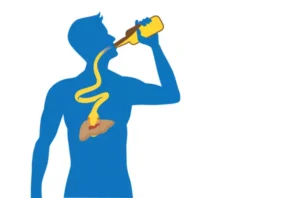
It takes time to go to personal therapy sessions, and there’s often homework to complete between sessions. Family members who spend their time in these sessions may get the help they need in order to help others, and they may find the strength and resolve that’s been missing until now. In fact, a 2014 Stress in America survey found that around 43% of adults use exercise to cope with stress. Drugs and alcohol can rewire the brain, disrupting function and leading to dependency. It results in a distorted value system that shifts toward supporting Hope House Boston Review ongoing substance use.
Best Online Therapy Platforms We Tried and Tested
Some of our AAC facilities offer same-day admissions, depending on various factors, such as the person’s willingness to get help and the capacity of our treatment centers. At each of AAC’s treatment centers, a caring and compassionate addiction treatment team develops an individualized treatment plan for your loved one based on their needs. To learn more about the rehabilitation services we offer, visit our addiction treatment centers page. It’s important to have people you can talk honestly and openly with about what you’re going through.
of the best alcohol support groups of 2022: Addiction support
- More often, people try to quit or cut back over time, experience recurrences, learn from them, and then continue on their recovery journey.
- A multi-year study of people with substance use disorder showed that only about a third of recovering individuals who had been sober for less than a year remained abstinent.
- This app offers on-the-go support, and people can fill out a diary in-app to manage goals and view their progress.
- SMART support group meetings are available worldwide and focus on self-empowerment and making healthy lifestyle changes.
While lifestyle alterations can be a big help for families in crisis, addictions can cause deep wounds that often benefit from seeking professional help. Research has found that families of addicted people experience increased levels of depression and anxiety. Caregivers can feel worn out from everything they’re asked to do for their family member, and they may not have access to healthy coping skills.

Is it better to go to an in-person sobriety group?
- Medical and mental health professionals can assist you with your ongoing recovery process even after you’ve successfully completed rehab.
- The organization believes in anonymity and encourages any group of two or more people to call themselves an Alcoholic Anonymous group.
- If you know someone who has firsthand knowledge of a program, it may help to ask about their personal experience.
- The Navigator offers a step-by-step process to finding a highly qualified professional treatment provider.
- You can help your loved one find healthier ways to reduce their stress level by encouraging them to exercise, confide in others, meditate, or adopt other relaxation practices.
- Its comprehensive treatment programs address not only substance use but also any other accompanying mental health disorders.
Maybe they’re a close family member or friend, or maybe it’s someone you don’t know as well. While you can’t shelter your loved one from situations where alcohol is present, you can avoid drinking with or around the person. When you spend time together, try to suggest activities that don’t involve alcohol. Even if they don’t require medical supervision to withdraw safely, they’ll still need support, guidance, and new coping skills to quit or cut back on their drinking. For people in need of a rehab program, many insurance plans have provisions that allow certain addiction treatments to be covered. Recovery Dharma is a nonprofit organization that uses Buddhist practices to support people on their path to recovery.
AA claims that it uses spirituality to provide support, but it does not affiliate itself with any religious denomination. However, Daybreak does not offer in-person meetings or a more rigid treatment plan. Those looking for a different type of support may wish to try another support group. Recovery Dharma offers a recovery approach based on traditional Buddhist practices.

Using live meetings and discussion groups, In The Rooms connects people around the world with others in recovery. The organization recommends using its online tools in addition to face-to-face meetings. These online tools have been a substitute connection method for members during the COVID-19 pandemic. In The Rooms gives people in recovery a place to socialize between face-to-face meetings.
AA and Other Peer Support Groups for Alcohol Addiction
Your provider may also be able to suggest an online self-guided program. Such e-health tools have been shown to help people overcome alcohol problems. Your health care provider can help you evaluate the pros and cons of each treatment setting. Ideally, health care providers will one day be able to identify which AUD treatment is most effective for each person. These advances could optimize how treatment decisions are made in the future.
- Focus on supporting your loved one’s healthy, future goals, such as continuing education or finding a job.
- Please note that the writer of this article has not tried these support groups.
- Your health care provider can help you evaluate the pros and cons of each treatment setting.
- While online groups offer comfort from behind a screen, in-person meetings can provide valuable relationship building and support.
The support group welcomes people of all faith or no faith and aims to promote sobriety without religion. LifeRing does not use steps and instead aims to promote self-recovery through peer support. The organization encourages people to go to other support groups and therapy if they wish to do so. Women for Sobriety offers peer support and group chats online, in-person meetings, and exercise and meditation classes. The organization also offers annual weekend conferences and nutritional advice. Women for Sobriety has a program for people who identify as women and are experiencing alcohol use disorder.
Treatment for Alcohol Problems: Finding and Getting Help
Your role in their support circle is to help them if they slip, as well as giving them love and encouragement. As much as you love the person with the drinking problem and as upsetting as it can be to watch them struggle with their addiction, there’s only so much you can do. You can’t monitor their behavior around the clock, make all their decisions for them, or allow their problems to take over your life.

After completing rehab for an alcohol use disorder (AUD), it’s important that individuals take part in on-going treatment and therapy services. Having a support system in place can make a significant difference in the recovery process post-rehab. The best program to quit drinking is the one that delivers results for your unique situation, and it varies from person to person.
